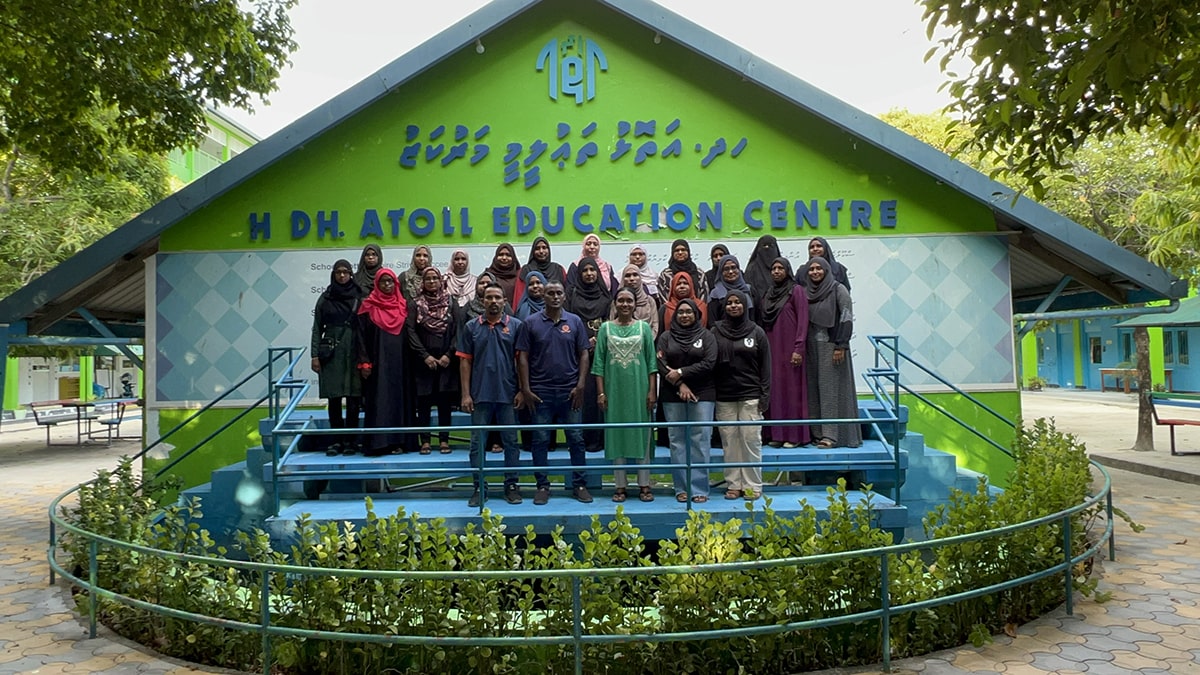By: Richa Macsuedon, Senior Programme Coordinator for HomeNet South Asia
The Maldives faces significant risks from climate change. Powerful storms, unpredictable weather and fire disasters aren’t just environmental issues – they put homes, health and livelihoods at serious risk. For the country’s many home-based workers, these dangers are especially urgent, as they often go unseen and unsupported during disasters.
To help address these risks, HomeNet South Asia (HNSA), in collaboration with Maldives Authentic Crafts Cooperative Society (MACCS) and U-Inspire Maldives, organised a two-day Disaster Risk Reduction (DRR) training in Kulhudhuffushi to equip home-based workers with the knowledge and tools to protect themselves and their livelihoods.
Building Awareness, Strengthening Resilience
The training brought together 22 home-based workers, sparking important conversations around how climate change affects their communities and everyday work.
Aside from helping them identify the environmental risks they are most vulnerable to, the sessions also covered practical response measures. Participants gained knowledge on essential topics like fire safety, risk assessment and business continuity planning – all envisioned to safeguard livelihoods during disruptions. A key component that was addressed was the gendered nature of disasters – highlighting how women, especially those working from home, are disproportionately affected and how the risks they face can be minimised.
Equipping Communities for a Safer Tomorrow
Participants engaged deeply with the sessions, which were designed to be accessible and relevant to their daily lives. The response was overwhelmingly positive, underlining the importance of localised, inclusive training efforts.
Many shared their own challenges and past experiences around facing hazards – and appreciated how the training has given them a clearer picture of what to do before, during and after a crisis.
In high-risk areas like the Maldives, empowering home-based workers is a key step toward building stronger, more climate-ready communities and this initiative achieved just that.



